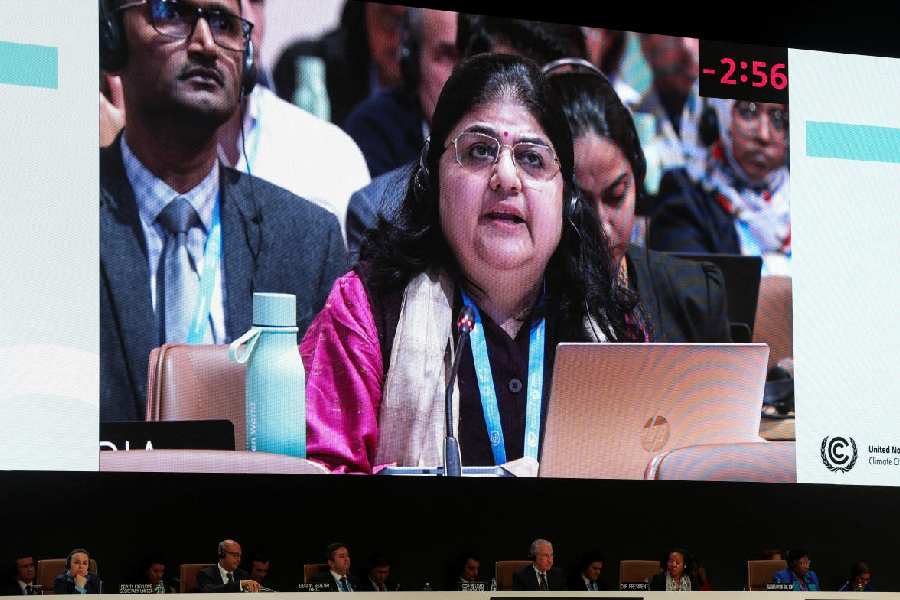Negotiators at this year’s United Nations climate summit struck an agreement on Sunday here in Azerbaijan to triple the flow of money to help developing countries adopt cleaner energy and cope with the effects of climate change. Under the deal, wealthy nations pledged to reach $300 billion per year in support by 2035, up from a current target of $100 billion.
The pledged support is, however, less than one-fourth of the demand of $1.3 trillion per year.
Even as the deal was struck, India’s representative Chandni Raina raised objections to the adoption of the document. “I regret to say that this document is nothing more than an optical illusion. This, in our opinion, will not address the enormity of the challenge we all face. Therefore, we oppose the adoption of this document.”
It is not quite clear whether India’s opposition has been registered formally. According to the norm of the United Nations Framework Convention on Climate Change (UNFCCC), the final decision cannot be taken by the presidency unless all countries formally agree to it. Raina refused to respond to a question by The Telegraph on this issue.
While expressing their reservation about the final decision, developing and least-developed countries agreed to accept it with the hope of pushing forward the agenda more strongly in future, particularly during the next COP in Brazil. Initially, these countries had insisted on at least $500 billion per year in climate finance support but the developed countries did not yield.
“The Donald Trump factor might have pushed the developing countries to accept the $300-billion annual target as they perhaps feared worse once Trump, a self-declared climate sceptic, takes over as US President next year,” an analyst said.
Experts point out that developing countries need at least $1.3 trillion to counter the ever-increasing climate change impacts. The UNFCCC text also requested developing countries to contribute voluntarily through South-South cooperation. In other words, India, China and other emerging economies were urged to support smaller climate-vulnerable countries in the region.
Pledge vs practice
The final seven-page UNFCCC text on finance, a copy of which is with The Telegraph, also mentioned the need for “all actors to work together to scale up funds to developing countries from public and private sources to $1.3 trillion per year by 2035.
“This new finance goal is an insurance policy for humanity, amid worsening climate impacts hitting every country,” said Simon Stiell, executive secretary of UN Climate Change.
“But like any insurance policy, it only works if premiums are paid in full and on time. Promises must be kept to protect billions of lives,” Stiell said, hinting at the poor performance of the developed countries in paying the committed amount in the past.
“No country got everything they wanted, and we leave Baku with a mountain of work to do… so this is no time for victory laps,” Stiell added.
India objection
India was not allowed to issue a formal statement before the gavel was banged to declare the deal done.
“India does not accept the goal proposal in its present form. Developed countries taking the lead for a mobilisation goal of a mere sum of $300 billion and that too to be only reached by 2035, that’s almost 11 years later, and that too from a wide variety of sources,” India’s statement read.
The statement said that “the goal is too little, too distant, it is 2035, it is too far gone”.
Harjeet Singh, climate activist and global engagement director for the Fossil Fuel Non-Proliferation Treaty Initiative, told this newspaper that developed countries “persistently ignore the desperate pleas for substantial increases in climate finance, a sum that should be in the trillions to effectively transition away from fossil fuels and shield vulnerable populations from climate impacts”.
He observed that “the flawed negotiation process at COP29, where rich countries presented their finance targets on the final negotiation day, forcing talks into overtime, has only deepened the rift”.
With inputs from New York Times News Service











